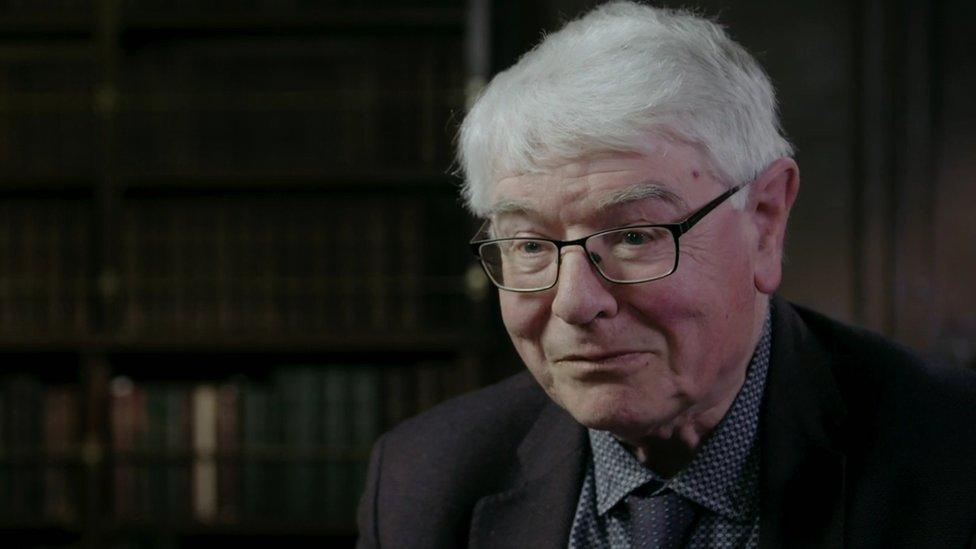Good Friday Agreement: Claim Sinn FĂŠin considered 'no' campaign in south
- Published

Martin Mansergh said Sinn FĂŠin considered the move
Sinn FĂŠin was prepared to campaign against the Good Friday Agreement in the Republic of Ireland, a former Irish government advisor has alleged.
Martin Mansergh said Sinn FĂŠin considered the move as the agreement removed Ireland's claim over Northern Ireland in its constitution.
He made the claims in an RTĂ documentary called Two Tribes which is due to be broadcast on Wednesday night.
A Sinn FĂŠin spokesperson said the claims were nonsense.
"Sinn FĂŠin negotiated and supported the Good Friday Agreement and campaigned for a yes vote in the referendum," they added.
"The party did not plan to run two different referendum campaigns north and south."
Mr Mansergh, who was an advisor during the peace process, explained how Sinn FĂŠin's planned opposition to the Good Friday Agreement in the Republic of Ireland had worried the Irish government.
"There was a nervousness you could be exposed to Sinn FĂŠin opposition," he said.
"They did contemplate supporting the referendum in the north and opposing it in the south.
"They had literature printed against the changes to articles two and three [of the Irish constitution]."
The documentary linked the "nervousness" within the Irish government about Sinn FĂŠin opposing the Good Friday Agreement to the decision by the then Taoiseach (Irish Prime Minister) Bertie Ahern to release four IRA prisoners known as the Balcombe Street gang who were serving life sentences for a string of murders and bomb attacks in England during the 1970s.
On their release the four men then appeared at a Sinn Fein Ard Fheis (conference) in Dublin supporting the Good Friday Agreement.
Mr Ahern told the programme: "I took the decision that we should release the Balmcombe Street prisoners who had been sent back on the transfer of prisoners.
"They were released in the afternoon and turned up at the Ard Fheis. I think the euphoria made sure we got across the line."
Sinn FĂŠin leader Mary Lou McDonald told the programme Mr Ahern deserved great credit for "understanding when an opportunity presented, to grab that opportunity and to bring it home".
At the time the temporary release of the Balcombe Street gang angered the Ulster Unionist Party leader David Trimble, who feared it would damage unionist support for the Good Friday Agreement in the referendum.
Related topics
- Published3 April 2023
- Published4 October 2022